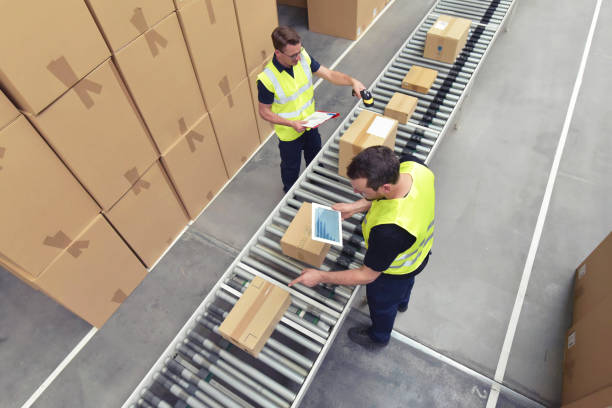Warehouse Packing Jobs: Roles, Responsibilities, and Career Paths
A warehouse packer is responsible for preparing products for shipment by checking inventory, packaging items, and labeling boxes. The role requires attention to detail, physical stamina, and efficiency to ensure that goods are sent out accurately and on time.

What Does a Warehouse Packer Do?
Warehouse packers are responsible for ensuring products are properly prepared for shipment. Their typical duties include receiving inventory, selecting items according to order specifications, wrapping or boxing products, applying appropriate labels, and preparing packages for delivery. Packers must verify order accuracy, maintain quality standards, and follow safety protocols while maintaining efficient processing speeds. Many warehouse packers also operate scanning equipment to track inventory movements, helping maintain accurate stock records throughout the fulfillment process. The role requires attention to detail, physical stamina, and the ability to work in a fast-paced environment.
Qualifications for Warehouse Packing Jobs
Most warehouse packing jobs require minimal formal education qualifications, making them accessible entry points into the logistics industry. Employers typically look for a high school diploma or equivalent, though some positions may not require even this level of education. Instead, the focus is on practical capabilities: the ability to stand for extended periods, lift items of varying weights (commonly 25-50 pounds), and perform repetitive motions safely. While previous warehousing experience is beneficial, many companies provide on-the-job training for new hires. Basic math skills, reading comprehension for following instructions, and familiarity with inventory systems or scanners can be advantageous for applicants.
Working Environments in Warehouse Packing
The physical environment of warehouse packing jobs varies significantly depending on the facility size, technology implementation, and company policies. Most warehouses operate in large, climate-controlled spaces, though temperature regulation can vary. Packing stations may be designed for standing or sitting operations, with varying degrees of automation to assist workers. Work schedules often include shifts outside traditional business hours, including evenings, overnight shifts, and weekends. Many warehouses experience seasonal fluctuations in demand, particularly in retail-oriented operations, leading to increased hours and temporary hiring during peak periods like holidays. The pace of work typically follows productivity metrics that track items processed per hour.
Compensation and Benefits in Warehouse Packing Positions
Warehouse packing positions typically offer hourly wages rather than salaried compensation. Entry-level packers can expect pay rates starting near minimum wage, with experienced workers earning moderately higher rates. Many warehouses implement shift differentials, paying premium rates for evening, overnight, or weekend work. Large-scale employers often provide benefits packages that may include health insurance, retirement plans, and paid time off, though eligibility requirements vary. Seasonal or temporary positions may not include these benefits. Some operations implement performance-based incentives, offering bonuses or higher pay rates to workers who exceed productivity targets while maintaining quality standards.
Prices, rates, or cost estimates mentioned in this article are based on the latest available information but may change over time. Independent research is advised before making financial decisions.
Career Advancement from Warehouse Packing Jobs
Warehouse packing positions can serve as stepping stones to higher-level logistics careers. With experience, packers may advance to specialized roles such as quality control inspectors, team leads, or shift supervisors. Further advancement opportunities include warehouse management positions, inventory control specialists, or logistics coordinators. Many companies promote from within, allowing dedicated employees to grow professionally while staying with the organization. Some employers offer tuition assistance or training programs to help workers develop additional skills. Career advancement typically requires demonstrating reliability, efficiency, leadership potential, and a willingness to take on additional responsibilities.
Technology in Modern Warehouse Packing Operations
The warehouse packing industry continues to evolve with technological advancements. Modern facilities increasingly incorporate scanning systems, inventory management software, and semi-automated packing aids. Packers often use handheld scanners or computer terminals to process orders and maintain inventory accuracy. Some operations implement pick-to-light systems that guide workers to correct product locations. Voice-directed picking technology allows hands-free operation in certain environments. Advanced facilities may incorporate conveyor systems, automated packaging machines, and robotic assistants that work alongside human packers. Familiarity with these technologies can enhance an applicant’s prospects when seeking warehouse packing jobs.
The warehouse packing sector continues to offer accessible employment opportunities for individuals with various skill levels and experience. While the work can be physically demanding and repetitive, these positions provide stable employment with predictable schedules and clear expectations. With the continued growth of e-commerce and distribution networks, warehouse packing jobs remain an important component of the modern economy’s infrastructure, connecting manufacturers and retailers with their customers through efficient order fulfillment processes.




